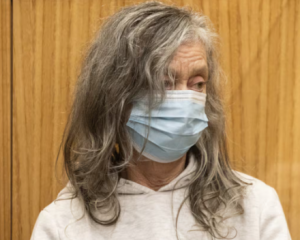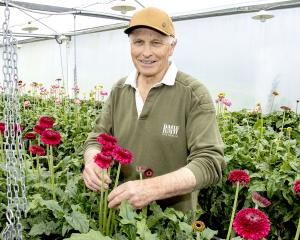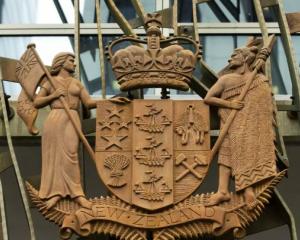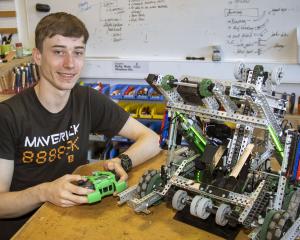
Your family are from the north of India near the border with Nepal, but your first sporting passion is football, not cricket. Please explain . . .
I was born in Liverpool and left reasonably quickly so I don’t retain the Scouse accent. I mainly grew up in the south of the United Kingdom but I still staunchly support Liverpool.
When did your parents emigrate to Merseyside from Uttar Pradesh?
Satvir (dad) and Archana moved to the UK in the mid to late 70s. When I was about 15 we moved to New Zealand.
How did the family end up in New Zealand?
Dad worked for the NHS (National Health Service) and he saw this opportunity to head up Waikato Hospital’s mental health unit. He said to me and my brothers (Vikrant and Nishant): ‘How about moving to New Zealand?’ We thought: ‘It’s an amazing island paradise’. We landed and ended up in Hamilton. We thought: ‘This is not what we thought New Zealand was’.
We’ll be charitable and offer you a chance to placate residents of the Waikato’s much-maligned centrepiece . . .
I have a lot of love for Hamilton, I met my wife (Unicia) there, I fell in love with rugby there. I work with (Crusaders chief executive) Colin (Mansbridge) and the team regularly on their marketing, and I still let them know I’m a Chiefs fan.

Many times. Most of my family are still in India. My dad is number 11 from 12 kids.
You took your daughters to India in 2019, it was quite a poignant journey to the village named Alam . . .
My grandfather (Pita-ji) was the first person in my family to learn how to read and write. He used the sacrifice the family put into paying for his education to become a teacher. His family were subsistence farmers and his older brothers didn’t want him to have the same life and committed to paying for his education. One day he wanted to be like his brothers, so he picked potatoes in the field rather than do his homework. They kicked the s**t out of him and said: ‘Our job is to pick potatoes, your job is to study’. He went on to university and when he had a family he set up a school for girls (and his daughters). It was good for my girls to go back and see where they could have ended up … a very different world.
Your grandfather died in his 80s when you were 14, but in a way his legacy lives on in your teaching at UC doesn’t it . . .
I’m trying to give back. I can’t see any greater way to give than see other people be elevated by their experience at university. I’m not so arrogant to say that I’m transforming these people’s lives but it’s a cool way to give back rather than make money off people, make an extra 10 per cent shareholder value for a millionaire.
That represents a change of mindset from when you graduated from Waikato University with a Bachelor of Management Studies in marketing and information studies doesn’t it?
I spent a couple of years in corporate marketing for a direct mail, effectively junk mail, company in Auckland. I was in the consumer insights area … understanding which suburbs consumers would be more receptive (to a product) and where the biggest return on investment would be. A lot of that is consumer psychology, what drives these people? What makes people tick? That was fascinating to me but doing it for profit wasn’t. At 24 I couldn’t see myself doing it for 40 years, or even climbing the ladder.
So you returned to campus in Auckland to study for a PhD in marketing?
The focus was can we use marketing and advertising to encourage young people living in poverty to make healthy eating and exercise choices? I spent a lot of time in low decile schools in Manurewa to see whether advertising can make a change in diet and exercise behaviours. Long story short, no, not really. You can’t just advertise healthy living.
Was it difficult to transition to teaching?
Auckland (University) was good for me because it wanted to create great academics. You have to be good at your research, but you also have to teach while you’re doing it. I was an assistant lecturer when doing my PhD. I always enjoyed that engagement and the teaching side. My first lecturing job was at the University of Bath (UK) from 2006-2009. I joined UC’s Department of Management in 2010.
Do you have a goal when lecturing in this sphere of influence?
All of this is hopefully for societal and human betterment as opposed to a financial gain, exploitation. Marketing is usually given a bad rap: ‘You’re just there to make money off people’. Most of my research throughout my career has been: ‘How do we benefit society in some way?’
Surely for some students, though, money is the bottom line . . .
Absolutely. My job is to facilitate learning and provide tools. If you choose to use that tool to make money, power to you. One of my first students (in Bath) did my programme on social marketing: How do we use marketing to provide pro-social benefit to society, quit smoking … blah, blah. He’s a head honcho in the tobacco industry now. He used everything I taught him to sell cigarettes. My colleague was quite hurt by this and I said: ‘We equip, prepare and hopefully instill some values as well, but it’s up to them how they use them’. One of my students (Sofia Wood) is promoting well-being and health in the North Island (Bay of Plenty).

When I turned up at UC, I was shocked digital marketing wasn’t being taught in the business school. In 2016 I was finally given permission to develop the course. Students come out with a certification in Google ads, but we also talk about why people use the internet and social media. What effect does social media have on mental health? How do we understand the human psyche that goes hand-in-hand with digital marketing?
Your teaching method is not exactly old school, underscored by the use of lyrics from a song in the movie Frozen in an exam to lighten the mood . . .
Exams are a horrific way to test students’ knowledge. Formal end-of-year examinations are inherently based on mistrust. The university mistrusts me as an academic to make a good call without someone else’s invigilation and I must mistrust my students to actually be responsible for their own learning because I have to test them in a closed setting that is completely abnormal to the real world. When I’m forced to do an exam I want to make it fun for the student and me. Once I asked: ‘How do you spell Ekant’s name?’ I put down four different spellings. Three people still got it wrong. That could’ve been sheer malicious noncompliance. My teaching style has always been a bit casual.

The students’ union investigated some student clubs that were acting in a way I didn’t feel was appropriate, they were making light of racism and sexism. Their report found if you’re going to do things like this please don’t put them on social media because other people might get offended. I felt it was a pretty weak response. Just prior to that kicking off a person in Riccarton told me and my daughters to ‘F**k off home’ because of the colour of my skin. I held their hand, took them into the mall and there was a realisation for me that I’m not going to be there to protect them all the time. So anytime there is an opportunity to make a change, to make their lives a bit easier . . . I thought I have to take this stand. It was tough, I still get hate mail from time to time from people who are very offended by me. People wanted me fired on the spot for bringing the university into disrepute. I haven’t won an award from the union since. I won it every year for four years and suddenly I’m a terrible teacher, I’m okay with that.
On a positive note, that stance was the precursor to undertaking an important off-campus role . . .
I’m part of the team that co-wrote the city’s multicultural strategy (in 2017). Post earthquakes we’ve seen an increasing diversity in our population but there was no real strategy to promote inclusiveness or diversity. We want people to feel like they have a sense of belonging, to not have to leave their heritage and their religion and culture at the door when they go to work.
Has the strategy proved effective?
Unfortunately the (strategy) action plan didn’t really get actioned until after the Mosque shootings. An action plan wouldn’t have stopped the shootings, but it might have helped us to connect as a multicultural community much better afterwards.
Where would you like to see Christchurch, say, five years from now?
We have a much more diverse population, but do we see that diversity in senior levels of our community? Do we see it in our schools, in the police? Or do we just see it in taxis and hospitality? When I go to an event representing the university or I’m at a fundraiser and I’m the brownest person in the room it shows we still have a long way to go as a city. Yes, we have more diversity but where is it in the leadership and influencer roles? That’s the next step for us.

I love being out in nature and not having cellphone reception. I’ve always struggled with my mental health, I don’t hide that. I’ve struggled with depression and I found that as extroverted as people think I am, I’m much happier when I’m on my own, and in my own space (coincidentally Ekant translates to loner/solitude in Hindi). Being able to focus on what’s in front of me, there and now, is super important. Going hiking and taking photos has been an amazing way to do that. I recently did the Routeburn and Kepler (tracks) back-to-back to enjoy the amazing taonga we have as a nation.
Stargazing is another diversion isn’t it, you recently photographed the comet C/2021 A1 (Leonard) late on Boxing Day while set up at Lake Ellesmere . . .
I’ve struggled with insomnia, so rather than get stressed out about not sleeping I thought I’d turn it into something positive. I’d been really amazed by some local astrophotographers and they said I could learn from them. I thought maybe this is the next challenge. It takes a lot of gear, planning, knowledge and effort. You have to be pushing yourself when it’s cold outside and you’re hiking into dark sky reserves. I’m also very task-orientated. I don’t sit well on the beach doing nothing.













